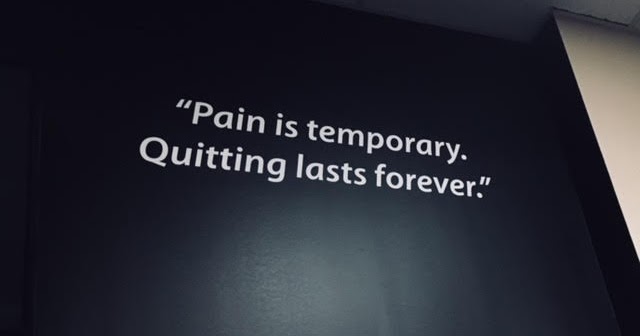Can You Add Joy to Your Workout Routine?

If your answer is “never” or “rarely,” it’s probably time to reevaluate.
Physical activity need not be a miserable experience. It shouldn’t be punitive, compensatory, or self-attacking. While a workout might be challenging or difficult at times, it should never be painful, motivated by fear, or sustained by self-hate.
I encountered the above quote at a gym several months ago. “Pain is temporary. Quitting lasts forever.” I’m not sure who said it, but it’s wrong. “Quitting” has taken on a negative connotation in our culture, when in fact, ending a workout because it hurts or doesn’t feel right can be exactly the self-care that is necessary to sustain a healthy relationship with exercise. For many, pain isn’t temporary. If you over-train or cross a threshold of discomfort during activity, you can do irreparable damage that threatens your physical and mental health.
If we enjoy something, we’re more likely to continue doing it. That’s Behavioral Psychology 101. Can you find the joy in your workout routine?
Recently, while teaching a spinning class at a local university, I spontaneously cued joy. We had just completed one sprint of a two-sprint song. As we were approaching the second sprint, I asked the class if they could do the second sprint “better.” Now, typically, “better” in a spinning class means faster or harder or anything that demonstrates greater effort. But in defining “better” for this class, I also asked them, “This time, can you sprint more mindfully? This time, can you sprint more joyfully?” I was surprised by the response. As soon as I said “joyfully,” I witnessed a room full of smiles. As much as we attend workout classes to sweat and work hard, we’re also looking for joy. And that sprint was more joyful. It was fast and hard, but playful, too. It was better.
Where can you add joy in your exercise routine? Can you craft a playlist that makes you happy? Can you skip instead of run? Maybe get off the elliptical and dance? The more joy we find through movement, the more likely we are to continue engaging in physical activity. Joyful exercise is not an oxymoron. Find a way to make movement fun for you.
You can find Does Every Woman Have an Eating Disorder? Challenging Our Nation’s Fixation with Food and Weight on Amazon (as a paperback and Kindle) and at BarnesandNoble.com.
|
|






